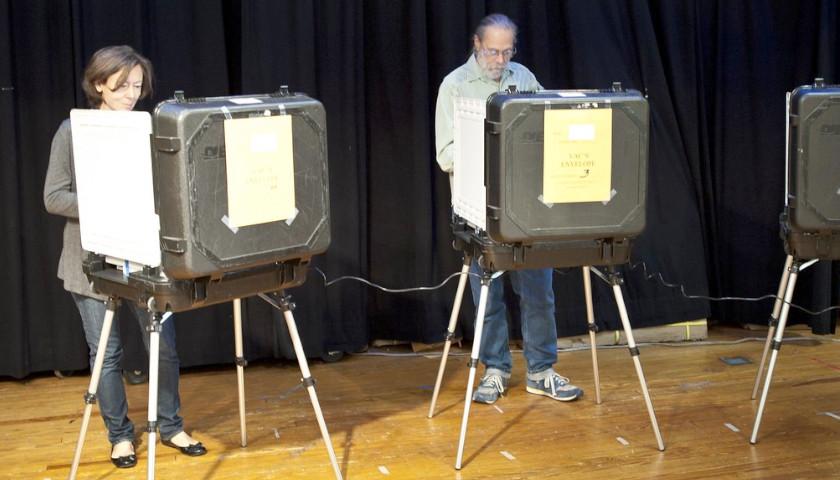More Arizona voters have continued to change their party affiliation to independent, making it the state’s largest voting bloc. This means more than 1.4 million voters will be unable to cast a ballot in the state’s 2024 presidential primary contests.
The Arizona Secretary of State released new data this month dating from July 2023, revealing that 1,450,697 Arizonans, or 34.55 percent of the state’s voters, are now registered independent.
In Arizona, independent voters may request a ballot for most primary elections, but are specifically forbidden from voting in the government-run Presidential Preference Election (PPE) that determines presidential primary winners in the state. Arizona independent voters are those who either specifically selected independent or did not select a party when registering to vote.
Scott Presler, a conservative activist and the founder of Early Vote Action, told The Arizona Sun Times he is concerned the growth of independent voters will cause confusion and distrust come 2024, when many discover they are unable to vote for a presidential candidate in the state’s closed primaries.
“If you want to vote for Donald Trump or Ron DeSantis, you must be registered as a Republican,” Presler told The Sun Times. “My concern is a lot of people who already don’t have trust in the system are going to show up as an independent voter on Election Day, only to find out they are unable to participate in the process because they are registered as an independent.”
The activist previously expressed his concerns on X, formerly Twitter, in August. “We need to inform as many Arizonans as possible, or thousands will not be able to vote in the PPE,” wrote Presler, including text from the Arizona Secretary of State website.
‼️IMPORTANT ARIZONA INFO‼️
In Arizona primaries, independent voters may choose a party ballot — meaning they can vote either R or D.
However, this is NOT the same for the Presidential Preference Election (PPE).
If you want to vote for Trump or DeSantis in the PPE, you MUST be… pic.twitter.com/Wh0p6cyjsF
— ThePersistence (@ScottPresler) August 11, 2023
Speaking to The Sun Times, Presler feared the matter is “only is going to add to people’s confusion, or even worse distrust, for the system that is in place.”
While independent voters are allowed to request a primary ballot for either party in most primary contests, the Arizona Secretary of State’s website specifically notes, “this DOES NOT apply to the Presidential Preference Election,” and explains that voters must be registered with a party recognized in Arizona to vote in a presidential primary.
Last month, the Maricopa County Republican Committee Executive Guidance Committee (MCRC EGC) demanded Arizona Republican Party Chairman Jeff DeWitt withdraw the party from the government-run Presidential Preference Election, which could potentially open the door to independent voters.
Unless that happens, Presler suggested Arizona Republicans upset with the national party should consider other ways to express their displeasure.
“If you want to show the party that you’re angry, then number one, don’t change your voter registration.” Instead, he suggested voters donate directly to candidates, rather than to the Republican Party, adding “nothing would send a better message than for us to be increasing voter registrations while the [Republican National Committee] isn’t making money.” Presler continued, “I think the general base is becoming cognizant to donate to their preferred candidate. They’re not supporting the party apparatus.”
Though Republicans have about 9,000 more registered voters than in 2022, the party’s vote share shrunk from 34.8 percent to 34.42 percent. The number of registered Democrats, however, decreased by 9,885 over the same span, lowering the party’s share of the Arizona electorate from 30.7 percent to 30.2 percent. There are more than 46,000 new independent voters since 2022.
The Libertarian Party has 33,738 registered voters, or 0.8 percent of the total number of registered voters, and Arizona’s newest political party, No Labels, has 8,505 registered voters, or 0.2 percent of the total.
– – –
Tom Pappert is a reporter for The Arizona Sun Times and The Star News Network. Follow Tom on Twitter. Email tips to [email protected].
Photo “People Voting” by GPA Photo Archive. CC BY-NC 2.0.





